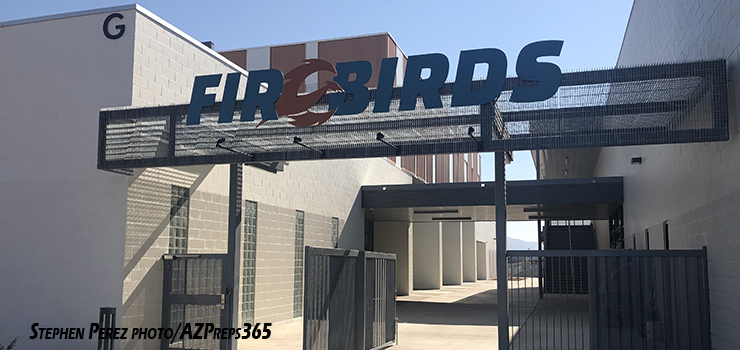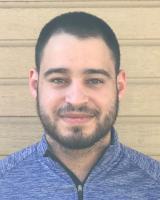Eastmark High School aims to establish strong culture in year one
July 15, 2019 by Stephen Perez, Arizona State University

Shaping an athletic department to be one of the best around takes hard work, dedication and the right leadership to see it off the ground.
Eastmark High School has begun to do just that, and the school hasn't even had a single student walk through the entrance yet.
Located on Ray Road just east of Ellsworth Road in Mesa, Eastmark will be the newest addition to education in the Queen Creek Unified School District.
In its inaugural 2019-2020 school year, the school will have approximately 750 students enrolled, starting from grades 7-10.
Due to the small student population in year one, the athletic department will not feature any varsity level competition. But that won't stop the school from trying to hit its goals.
Kraig Leuschner, the athletic director at Eastmark, believes what they set in place before the opening and what will continue to grow throughout the first year sets the school up for success for years to come. The reason behind this belief is centered around the strong culture the school has already established, which includes the coaches and top-notch equipment and technology.
An example of that technology is the introduction of one-to-one learning in the classroom that translates to athletics. One-to-one training is a program that equips each student with a technological device. In Eastmark's case, Google Chromebooks will be distrubuted that allow each student to embrace learning in a different direction.
For the athletic department, that also means using data and analysis to improve on the field.
"We have the ability to create whatever we want," Leuschner said. "It enhances every student's ability to break down film in their homes, in a classroom or in a locker room."
What the Chromebooks and their use of Google Classroom will do is give each and every student-athlete the opportunity to share and receive feedback from any of their teammates and coaches.
Paul Gagnon, Planning Principal at Eastmark, said that as educators they are always trying to get students to reach beyond the depths of knowledge.
"You’re always trying to get to that level three and four, but never do because you run out of time,” he said. "With technology, students have access to levels one and two already, so it's more of what you are doing with that information and applying it to different situations to gain that greater depth of knowledge.”
While technology is helpful, establishing a culture is just as important and it begins with hiring the right staff to see it through.
It became serious when Eastmark hired Andrew "Scooter" Molander and Shawn Lynch to man the football and basketball programs, respectively.
Both Molander and Lynch come with over multiple decades of coaching experience combined. Experience is great, but inexperience is also an attraction because it brings different viewpoints to the table.
For example, Jeff Singer, Eastmark’s head baseball coach, is in his first year at the helm of a program, but comes with a heavy baseball background.
Leuschner believes those levels of balance help present new ideas.
“The coaches we have working for us are professionals. And one of the nicest parts about that is I can ask them to create something, ask them for their input, and there’s no one in the room too shy to give it,” he said. “The challenge is paring down the great ideas to attainable goals.”
As Leuschner and the coaching staff sat down, the mission and culture began to take shape. They wanted to build a foundation on three pillars. “What does it mean to be respectful? What does it mean to be innovative? What does that mean to be collaborative?” he added.
In the end, it’s all about doing right by the kids.
“As a group of adults, what is our charge? Our charge is to be student-focused,” he said. “In doing so we are trying to make sure we prioritize the needs of the students over the needs of the adults.”
